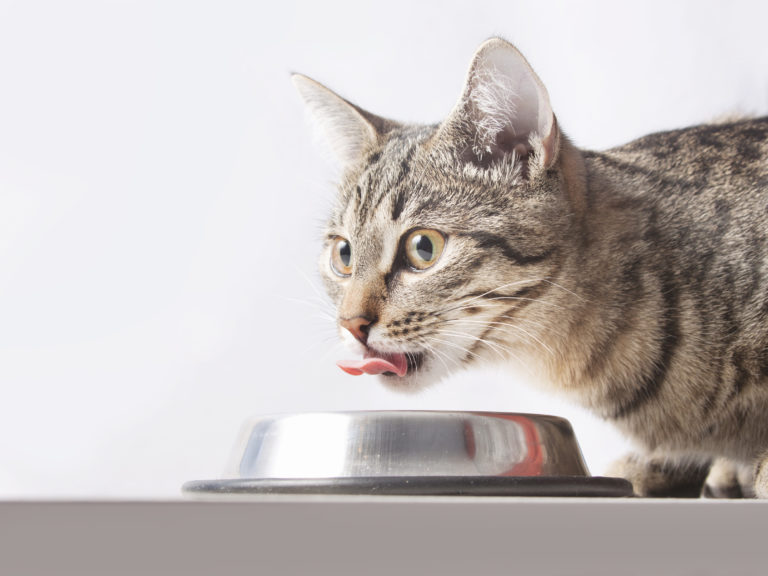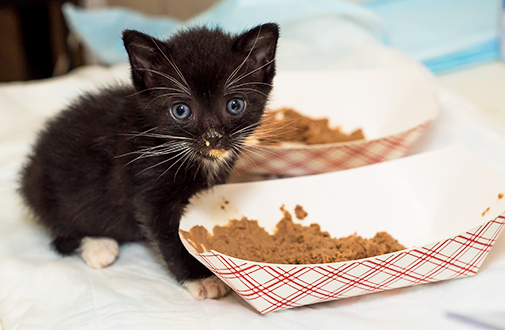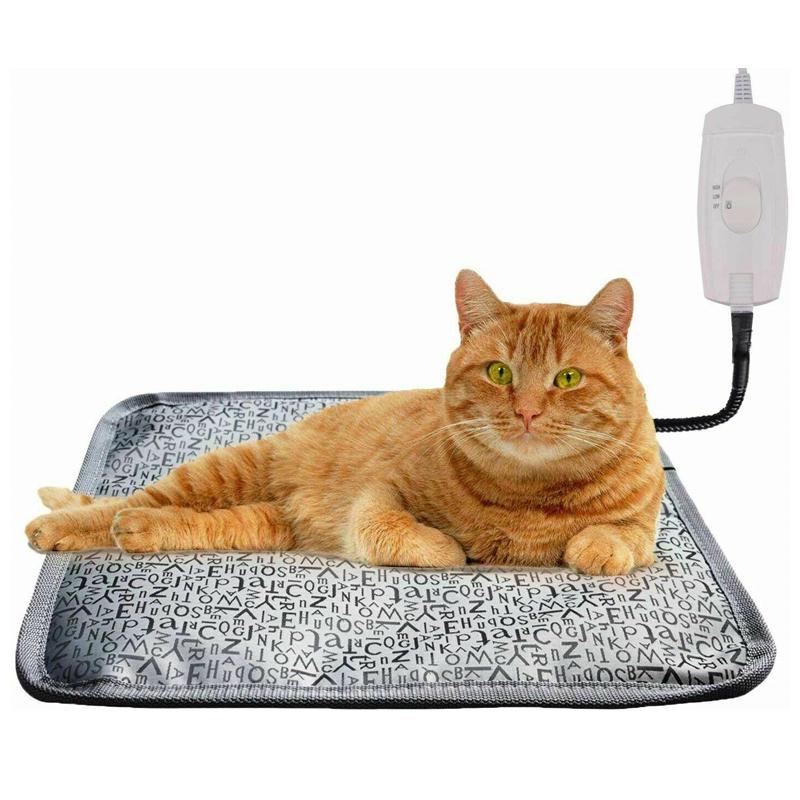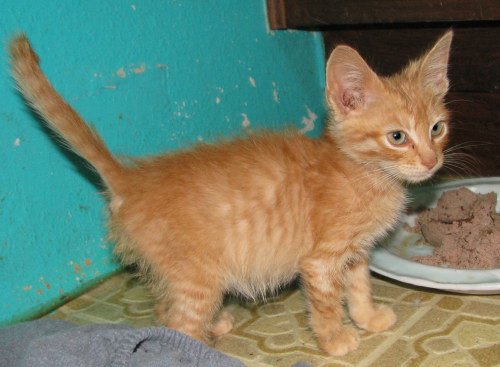Is your kitten bloated? If so, you’re not alone. Many kittens experience bloating at some point in their lives.
Bloating can be a sign of an underlying health issue or it could just be a temporary problem caused by the diet. For instance, if your cat eats too much food, they might easily get bloated.
So, what do you do? Well, you may want to get in touch with a vet to ensure your cat is fine.
However, there are also some home remedies that you can try.
In this blog post, we will discuss some of the best home remedies for alleviating bloating in cats. Let’s jump right in!
6 Home Remedies for Bloated Kittens
1. Elevating your kitten’s food and water bowls

Bloating can often be caused by overeating or drinking too much water too quickly.
By elevating your kitten’s food and water bowls, you can help prevent bloat by allowing your kitten to eat and drink more slowly.
Start by buying an elevated bowl which you can get on Amazon or your pet store.
If your cat is not used to eating from an elevated bowl, it might take him some time to adjust.
But you can keep training him until he is ok with it. Also, you can experiment with several bowls to find one that works for your cat.
But even as you do this, remember that an elevated bowl is not a way of treating any underlying health issues that might be causing the bloating.
On the contrary, it is just a measure to curb overeating.
Related Post: 12 Best Cat Bowls for Messy Eaters
2. Adding a probiotic to your kitten’s diet
Bloating may be a sign that your cat has too much bad bacteria in his gut.
Cats are like humans in that most of the immunity comes from the bacteria in the gut and it is, therefore, important to ensure that your cat has enough helpful bacteria and less of the harmful type. This is where probiotics come in handy.
Probiotics are living microorganisms that can help improve your kitten’s gut health.
According to PetMD, probiotics can help deal with all kinds of digestive issues including diarrhea, vomiting, stool changes, and bloating.
Introducing probiotics to your kitty’s diet will help to create a healthy balance of the good and bad bacteria, and this will ensure the cat is safe from health complications.
For the most part, the cat should get enough probiotics from his daily diet – as long as you are feeding them well.
However, when they are dealing with a health complication like bloating, you may want to supplement by adding foods that are rich in probiotics.
Probiotics can be found in supplements or fermented foods like yogurt or kefir.
3. Make sure your kitten gets enough exercise
Almost all cats love lounging and snoozing – especially if they are in a comfortable area. As such, domestic cats exercise less than outdoor cats.
As a cat owner, you may want to stimulate your kitty through lots of play and exercise as that can help her stay healthy and prevent bloating as well as other health issues.
Exercise is important for all cats, but it can be especially helpful for kittens that are prone to bloating.
The exercise will stimulate the digestive system and can help relieve gas and other symptoms of bloating.
But even after solving the bloating issue, you will want to give your cat enough exercise.
Cats are low-maintenance pets and it is easy to assume they can play on their own.
But if you want your cat to be healthy and happy, engage her with intense play activities for at least 5 minutes every day.
4. Ensuring your kitten has a healthy diet

Just like humans, cats need to eat a balanced diet to get all the nutrients and energy.
The digestive gut of the cat is lined with probiotics that help to boost the cat’s immunity and also prevent bloating.
When the cat lacks some nutrients in the diet, the gut will have a build-up of unhealthy microorganisms which can result in all manner of health issues.
A healthy diet is important for all cats, but it can be especially helpful for kittens who are prone to bloating.
A healthy diet includes plenty of high-quality protein and fiber, which can help reduce bloating and other digestive issues.
5. Giving your kitten a massage
A gentle massage can help relieve bloating and gas in your kitten.
The message will stimulate the muscles, nerves, lymphatic and circularity systems.
So, it will do much more than just relieve the cat of bloating. For instance, it will help increase the supply of oxygen, increase motion, and flush away toxins that might be causing your kitten pain.
The massage can also deal with anxiety which ultimately helps to correct any eating disorder.
Before you get started, look for a quiet spot and also make sure your kitty is in a nice and relaxed mood.
Cats love a belly rub, so your cat will most likely enjoy the massage.
Start by massaging your kitten’s belly in a clockwise direction. If your kitten enjoys the massage, you can continue for up to five minutes.
6. Using a heating pad on their stomach

If your kitten is bloated and in pain, a heating pad can help.
Place the heating pad on your kitten’s stomach and set it to a low setting.
Heating pads are okay and safe for cats as long as the heat is set to low or warm.
However, you should only use the heating pad for short periods, as too much heat can be harmful.
The cat should not lie directly on the pad and you shouldn’t apply it for more than 30 minutes at a time.
Conclusion
Bloating can often be a sign of a more serious underlying health condition, so it’s important to seek veterinary care if you’re concerned about your kitten’s health.
This is especially so if your kitten is frequently bloated or has other digestive issues.
Your vet can help identify the cause of your kitten’s bloating and recommend the best course of treatment.
Related Post: What Does A Normal Kitten Belly Look Like?

Hi! I am Eleanor Price. I started this website after my cat, Louie, almost died from a case of botulism (a type of food poisoning often caused by bacteria that grow on food items). Turned out that my cat’s diet was the problem. I have made it my duty to provide the best information and recommendations about everything cat lovers need to know about their felines’ health and wellbeing. My goal is to find the most informative content on anything feline-related and share it with fellow hardworking kitty lovers.

